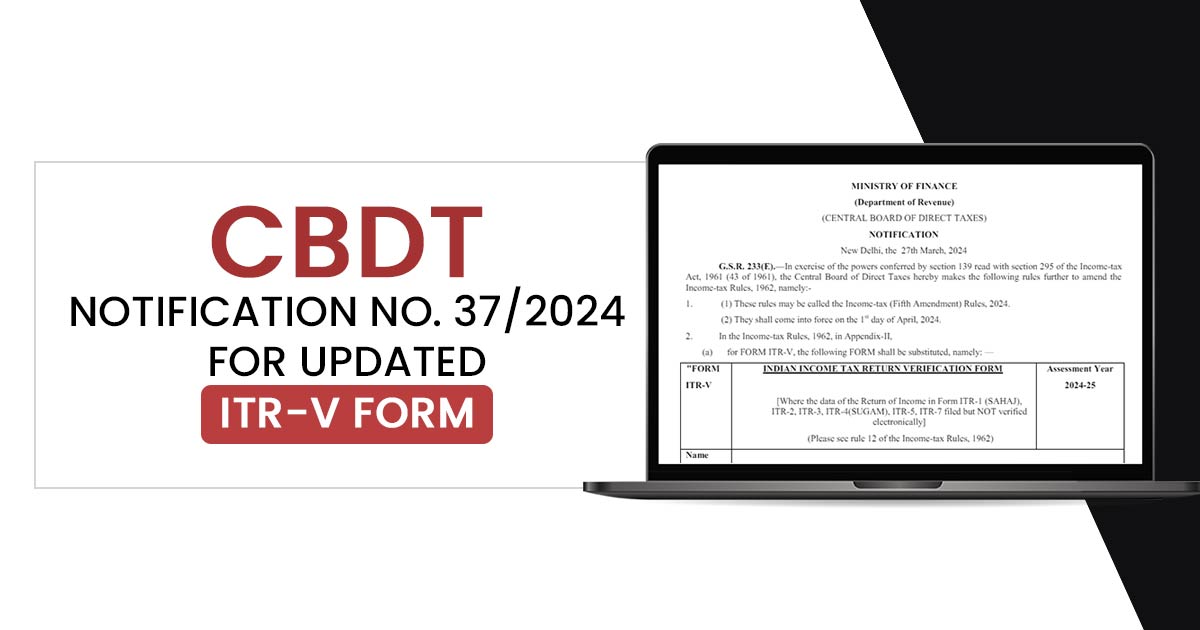
A significant update for the verification process for electronically filed Income Tax Returns (ITRs) is been announced by the Central Board of Direct Taxes (CBDT). Effective from April 1, 2024, taxpayers need to use the newly notified Form ITR-V who submit their returns through electronic mode but fail to verify them electronically.
Important Facts About ITR-V Form
Old: Applicable Assessment Year: New: Assessment Year Apply For the AY 2024-25, starting from April 1, 2024, the notification is applicable. Taxpayers dropping under various ITR categories, including ITR-1 (SAHAJ), ITR-2, ITR-3, ITR-4 (SUGAM), ITR-5, and ITR-7, are subject to this requirement.
ITR-V Form Official Notification: CBDT has notified Form ITR-V officially, which is compulsory for assessees who have filed their Income Tax Returns electronically though have not completed the verification procedure electronically.
Aim of Form ITR-V: Form ITR-V functions as an acknowledgement cum verification document for assessees. It is a critical step in the process of filing, ensuring compliance with tax statutes.
Fine Applicable on Non-Compliance: Assessees forgetting to submit Form ITR-V within the prescribed timeframe may encounter penalties or additional scrutiny from tax authorities. Taxpayers must ensure timely compliance with all legal needs to avoid any adverse consequences.
Due Date of Submission ITR-V: Assessees should comply with the said timeline set by CBDT for sending the duly filled and signed Form ITR-V to the CPC. To avoid any complications or penalties timely submission is critical.
CBDT’s Aim to Make Tax Compliance Easier: CBDT notification shows its current efforts to ease the tax process, enhance compliance, and ensure the goodness of the tax system. CBDT via introducing updated forms and processes has the objective to make the tax filing experience more effective and user-friendly for taxpayers.
ITR-V Verification Method: Assessees are needed to fill the particulars in Form ITR-V manually, sign it, and send it to the Centralized Processing Centre (CPC) within the set timeframe. Negligence of that may lead to the return being considered invalid, potentially resulting in penalties and further scrutiny by tax authorities.








